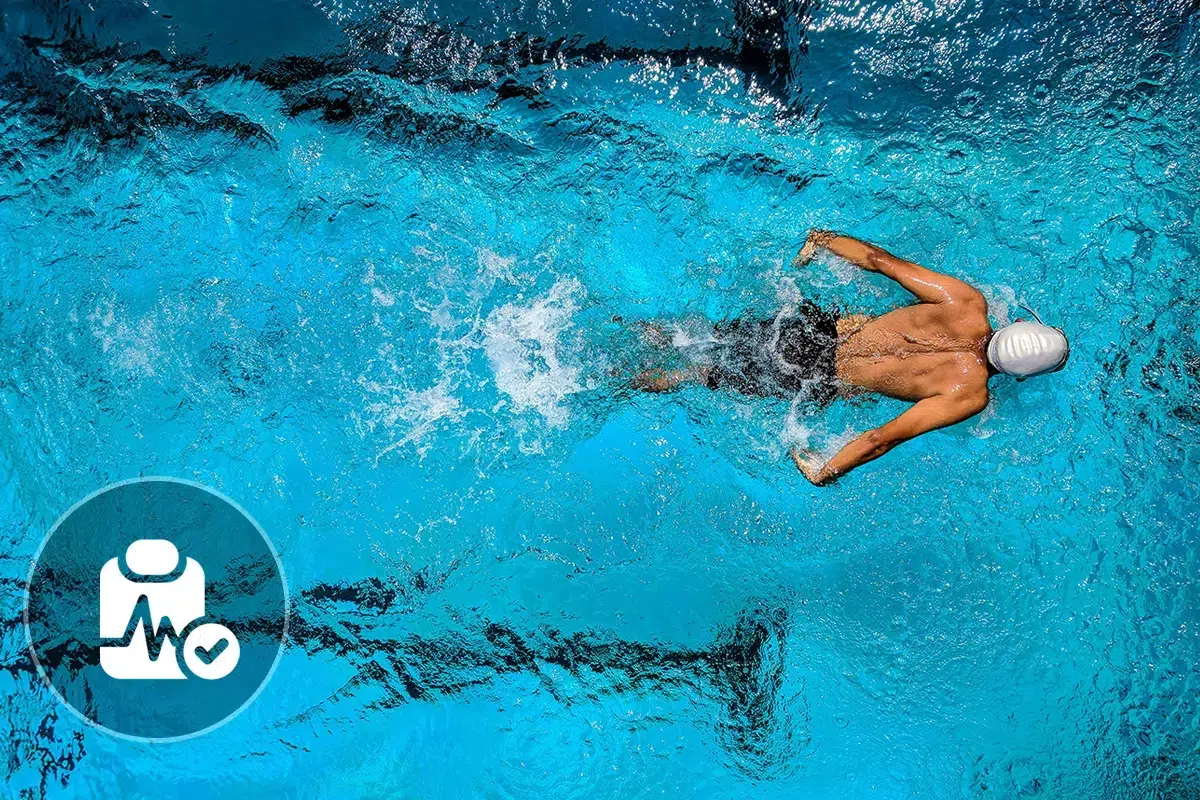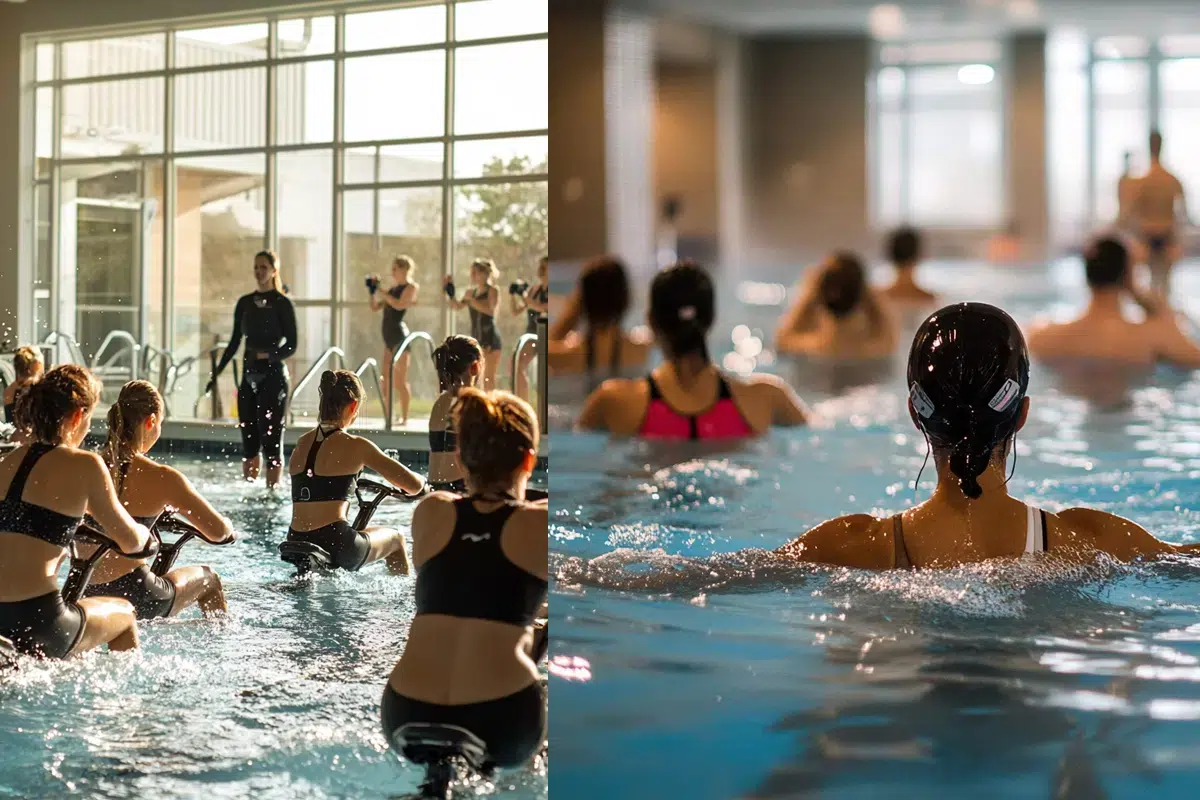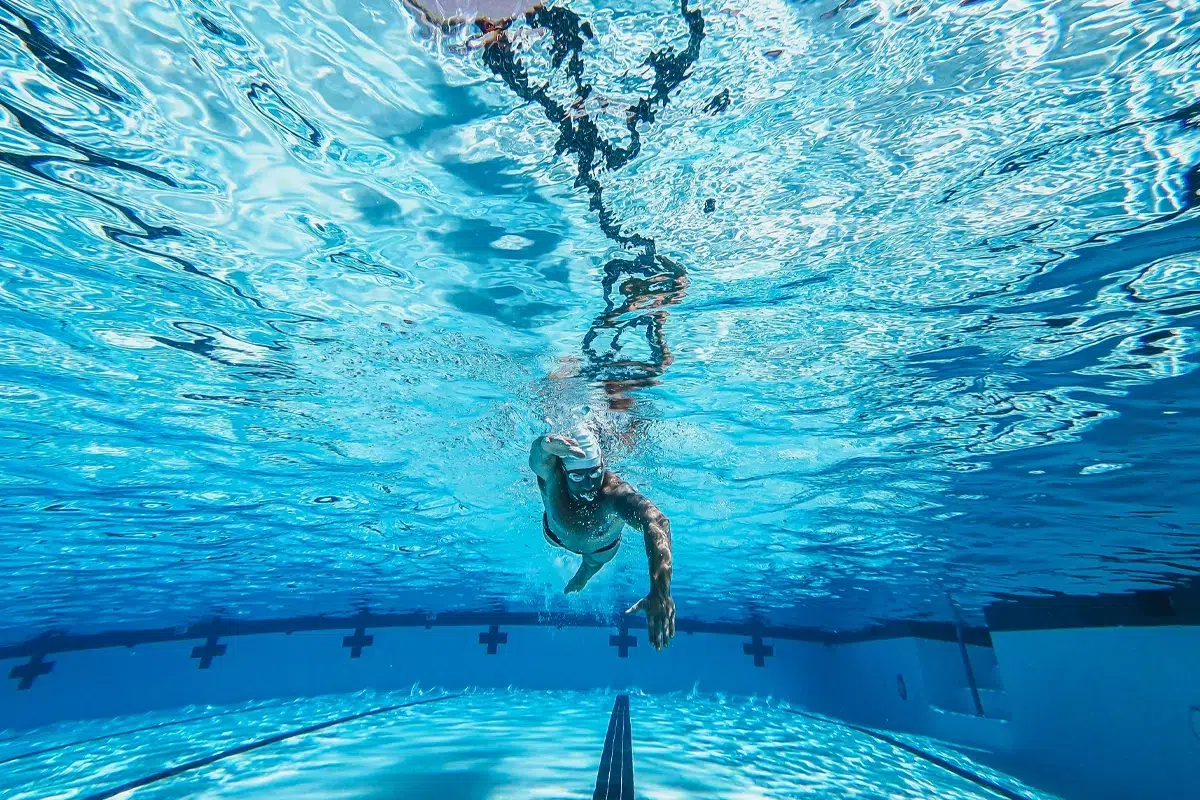Show summary Hide summary
- What are the health benefits of swimming?
- More information on swimming
- TOP 4 advantages and benefits of swimming
- What are the contraindications and disadvantages of swimming?
- Definition, information and practical advice on swimming!
- Other water sports: dive into the world of aquatic sports
- Discover the health benefits of other sports!
What are the health benefits of swimming?

Everything you need to know about swimming
What are the health benefits of swimming? Use the tool below to find out all the benefits of swimming and discover whether this sport meets your goals and expectations.
More information on swimming
Is swimming good for your health? Is it a good sport that is accessible to everyone? Whether you’re a beginner or an experienced swimmer, you’ll find a list below of the benefits and problems you may encounter when swimming.

TOP 4 advantages and benefits of swimming
Swimming is good for the body. If you want to do something good for yourself while keeping your figure in check, swimming will help you :
- Swimming helps to maintain the heart and improve breathing
- Swimming tones the whole body and makes joints more flexible
- Swimming gives you a gentle workout and strengthens your immune system
- Swimming helps relieve stress and promotes well-being
What are the contraindications and disadvantages of swimming?
Swimming has more advantages than disadvantages. Even if they can be worked on, a few factors such as the fear of showing your body to others or aquaphobia can at any time be a brake on swimming. If you suffer from any of the following conditions (skin problems, lung infections, neurological disorders, lower back pain, joint problems, tendonitis, etc.), it is advisable to seek medical advice.
Definition, information and practical advice on swimming!
What is swimming? When and how?
Swimming is a physical activity that allows you to move and swim in water (swimming pool, lake, beach).
Suitable for babies (baby swimming), senior citizens and pregnant women, swimming is the only complete sport that can be practised for life and has virtually no contraindications. Swimming relieves tension and stress. If you’re overweight or have weak joints, swimming will help you to get back into exercise gently.
What are the different types and techniques of swimming?
- Breaststroke is a symmetrical stroke that involves pulling with the arms followed by propulsion with the legs.
- The crawl is the fastest swimming technique. The swimmer lies on his stomach and alternately rotates his arms while kicking his legs.
- The back crawl is an asymmetrical stroke in which the swimmer swims on their back. The swimmer alternates between arm and leg movements to propel himself.
- Butterfly swimming is a symmetrical stroke in which the swimmer propels himself by pulling and pushing his arms and undulating his legs and hip.
- Synchronised or artistic swimming is a combination of dance and swimming that consists of reproducing gymnastic figures to a musical background.
Other water sports: dive into the world of aquatic sports
Water sports offer an excellent opportunity to strengthen your body while staying refreshed. They are perfect for improving cardiovascular fitness, muscle strength, and flexibility, all while being gentle on the joints. Discover these aquatic activities to diversify your training:
- Aquabiking: Strengthen your legs and improve your cardio by pedaling in the water.
- Aqua gym: Develop strength and flexibility through dynamic water exercises.
- Kayaking: Enhance your coordination and upper body strength while navigating in a kayak.
- Scuba diving: Explore underwater environments while enhancing your breathing and relaxation.
Everything you need to know about swimming
Discover the health benefits of other sports!
All sports in detail!




















































